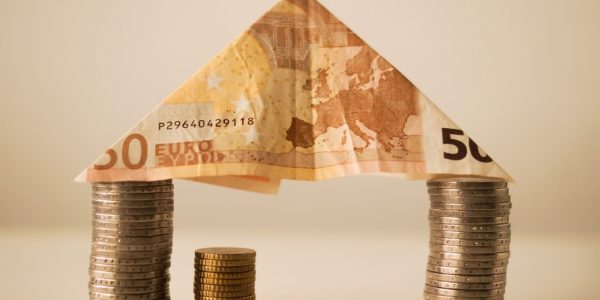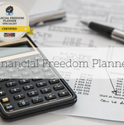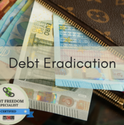Unless you can measure or determine the risk in an investment or business it is best to avoid the investment until you have the knowledge to do so.
The reason why I say this is because risk is more important than growth when it comes to investments.
It is the risk in any investment that kills the investment eventually.
Most people do not understand risk and secondly do not know how to calculate it.
As long as the investor is ignorant someone else is going to make money out of the ignorant investor.
Most investments are done based on emotion, because investors do not know how to calculate the risk in the investment or the growth on the investment.
They invest because it feels right.
During the last fourteen years I have taught thousands of students on how to invest in property.
Not a single one of them could calculate the risk on a residential property investment.
Some of the student (especially the students with financial degrees) had fancy theories but were unable to determine and calculate the risk in a property investment.
Why?
Because there is no system available to calculate it. (Unless you use the Property Pro Investment System)
Now for an even more fascinating observation from my side.
I have never in my eighteen years as a professional financial planner met a person (including actuaries) that could determine and calculate the risk in any paper asset.
Why is that?
The financial institutions want to keep us ignorant when it comes to risk.
With any paper asset class of investment the financial institutions do not take any risk.
They transfer all the possible risk back to the investor without the investor even realizing it.
Do you know that when you sign any contract with a financial institution or give them a mandate to manage your portfolio you sign a contract in which they state that they will manage your investment “risk free” from their point of view.
In other words if the market turn against them and they pay you less money than you invested, you cannot hold them responsible for the loss.
Up to a few years ago the general public thought that if you invest your money with the banks in a fixed deposit that it was “safe” – in other words a risk free investment.
Nowadays after the Saambou and BOE incidents people are beginning to realize that what they perceived to be “safe” investment were in fact as risky as any investment because there is always a chance that you can loose your capital.
Do you know that the bank does not guarantee your investment?
If it were not for the intervention of the reserve bank and other financial institutions that stood a chance to lose billions the investors in “safe” investments like fixed deposits and even those that had their money on call accounts would have lost billions.
So what people perceived to be risk free is as risky as any other investment.
Why?
Because the investor is the only person to loose.
No financial institution takes any responsibility for your investment.
The risk always stays with the investor.
But here is the paradox.
If we have a surplus to whom do we give it to grow our money on our behalf?
We give it to the financial institutions or the “experts” advice us to invest with the financial institutions in order to give us the best growth.
But who is responsible for the risk?
The risk always stays with the investor.
If the investment does not perform, it is only the investor losing money.
It is never the financial institution.
They make sure of that with contracts and mandates.
To confuse the investor even more they must subscribe and get licenses from the Financial Service Board (here in South Africa) and other boards and government institutions overseas to invest.
They have different investment rules etc. in place in order to safeguard your investment.
This is all legal jargon to blind you from the truth.
The truth is, if they follow their rules and code of conduct and they loose money the only person that will loose is the investor.
In other words, we hand our surplus over willingly, signing away all rights, in order to receive possible growth but we keep all the risk no matter what happens.
As a result of this system we stay poor.
The institutions are not asset managers, they make their money by deducting administration, management and other costs from the investment to manage and to administrate it, but they never guarantee the allocation amount.
Some of the Financial institutions do give a “guaranteed” minimum but that guarantee is base on the assumption that they will still be in business if and when you money must be available.
Please take note that I do not say that what the financial institutions doing are wrong.
I think that they have a important role to play to help the masses, because if the masses do not want to take responsibility to save and invest to provide for their old age, there will be more poor people.
If you do not want to take the responsibility and you are prepared to take the risk then the financial institutions is the perfect place to save you money.
As long as you know it is not as “secure” as you may think.
If however you want to take the responsibility to create wealth then you will know that you cannot separate the risk and growth on your surplus from one another.
The main reason why people do not know how to calculate the risk is because people invest on emotion.
Is it possible to overcome this problem of investing on emotion?
You must find a system (program) to determine the growth of an investment or even a business.
One important factor that an investor needs to determine is the risk in an investment or business.
There are different definitions for risk however if you look at what risk is in relation to wealth creation it will be suffice to say risk is the reality or possibility to loose capital or income or both.
It is that easy.
The next question is which is the most important – income or the capital?
Because in most investment portfolios the capital determines the income, the general consensus will be that capital is the more important of the two.
If this is the case as with any class of paper asset then capital is more important than income and therefore the risk is more severe if you loose capital.
Let me give you a typical example
If you have a fixed deposit for R1,200,000 and you invest it at 12% per year it will give you an income of R12,000 per month.
If you need that R12,000 to cover living expenses then your income and your expenses are the same and you have no risk.
But what is going to happen if you loose 50% of the value of the capital – your income will decrease to R6,000
If you base your financial wealth on any module where your income is dependent on the capital value of your investment then your biggest risk is not to loose capital.
If however you base your financial wealth on a module where income is not dependent on capital then there is no risk in loosing capital, your risk now becomes the risk to loose income.
In other words risk will have different meanings for different people.
To become financially independent your passive monthly income must cover your monthly expenses.
Let’s take the following example.
Let’s say you have bought a property 5 years ago for R1,000,000 that is worth R2,000,000 today.
You’re rental income at this stage is R12,000 per month after costs.
You need the R12,000 to cover your other living expenses as in the previous example…
If the property market tumbles and loose 50% of capital value and the market value of the property drops to R 1,000 000 but you still receive a monthly income of R12,000 then the risk of loosing the capital is not so great as if your property is still worth R2,000,000 but your income from the property drop to R6,000.
The moment this happens you have a shortfall of R6,000 per month and you must now start using Capital to maintain your standard of living.
If however your capital growth per year is more than your income loss per year it is arguable that you can subsidize the loss of income with the capital gains and therefore make the assumption that if your capital gain is more than your income loss it is better to offset income in order to improve capital.
Because of this argument a new financial terminology was invented called negative income gearing.
What is negative gearing?
”Negative gearing refers to the situation where you borrow money to buy an investment, but the investment does not have enough income to cover expenses (i.e. the interest on the money you borrow and the expenses involved in keeping your investment)”
The moment the income is less than the expenses there is a loss on the cash flow of the property.
The nature of the risk changes because the nature of the investment changes.
The biggest risk now becomes the repayment of the bond.
If you do not have the cash flow you cannot repay the bond and the financial institutions repossess the property.
The financial institution is a business, it is not interested in risky investments, it will need confirmation that you can repay your debt.
As a general rule they will only allow you to repay thirty present of your gross income (including your spouse’s income) on a property or else they will take your assets as an additional security measure.
The interest rate as well as the term of the bond (or overdraft repayment) will have a direct effect on the amount of money that they will lend you.
If you apply for a bond of R 400,000 at 14% over a twenty year period your bond repayments will be
R 4,974.08 according to the amortization method.
That implies that you must earn a minimum income of R 16,580.
If the interest rate reduce to 9% your repayments will be R3,599 and your income must be R11,996.
As a result of a lower interest rate you can now buy a property to the value of R552,843 for a monthly repayment of R 4,974.08.
With an income of R16,580 – the interest rate at 9% and a term of 30 years you can buy a property of R,618,178 or R218,178 more than when the interest rate is 14% and the term is 20 years.
The term and interest rate therefore play an important part in determining the risk.
If any one of these changes, it will have an effect on both the risk and the growth of the investment.
It therefore becomes clear that risk will have different meanings to different people and the different ways of investing.
Risk will also depend on your personal financial position and what may be a risk to one investor may not be a risk to another.
Let’s look at another factor that will determine the risk for an investor.
If you need income to maintain your standard of living then the consequences of loosing income, propose a higher risk than loosing your capital.
If however you are not dependent on the income from the new investment and you have enough income to pay for your monthly expenses, without taking the proceeds of the “new” investment into consideration your risk profile again will look differently than that for the next person who need the income.
In this scenario your biggest risk is to loose capital.
Your risk will vary according to where you are in the building of the wealth process.
If you are not financially independent and you rely on your income your biggest risk is to loose your income or your job.
If you are financially independent, in other words your passive income cover all your monthly living expenses then income is more important than capital except if you have invested in paper assets then the risk of loosing capital propose a bigger risk than income because the capital provide the income.
If the investor is financially wealthy and does not depend on the capital to generate income then the chance to loose capital proposes the highest risk.
So from these arguments we can see that risk will have different meanings to different people?
But what is the catch?
Unless you can determine your risk and can manage that risk you are always in danger of loosing.














15 Comments
Lulama Mhlongo
June 18, 2016The feedback alone is very informative Dr Hannes, Im getting ready to be one of your students. Goodbye Poverty!!!
paternus
June 15, 2016I always follow your advice and happy to people commenting. i will also contact letta to organise your visit to Namibia please.
Lefa Chabeli
May 9, 2016Dr. Hannes,
I have a surplus of approximately R50 000,00 monthly. Can you advise me what investment should I look at investing in, ensuring that my IGR>FFGR.
Your support shall be highly appreciated.
Hannes Dreyer
May 11, 2016Lefa
By now you should know that I do not give ‘advice’ I teach
The best and only “advice’ that I can give you is to invest in yourself to improve your business and investment competencies by following the Wealth Creators Business and investment blueprint.
Yaqub Solari
April 14, 2016☺ Thank you Hannes Dreyer
Well explained, much appreciated.
Lefa Chabeli
April 14, 2016Dr. Dreyer.
As your student and mentee. In your view how can I securely invest my monthly surplus of R50 000.00 safely on the market, without breaking the law or equation of Riches?
Lefa Chabeli
Hannes Dreyer
April 14, 2016Lefa
If you refer to the market as “paper assets – like stocks, fixed deposits, endowments, unit trusts etc) then the answer is you cannot.
The only two investments where you can apply the Formula For Riches successfully are property and business.
The easiest way to start a business (part time in the beginning) is to start a digital or Internet type of business.
Lefa Chabeli
May 9, 2016Dr. Dreyer
Thanks for the response and the weekend RoadMap presentation during April at your farm.
I currently have the business(www.lemitechex.com) as I’ve mentioned to you during one of the breaks in the RoadMap weekend aforementioned.
Beckground
I’m buying the Huizemark Franchise with capital investment amounting to approximately to R600k initially. The challenge is that in the first year the, using the figures has been sent to me by the franchiser (i.e. Huizemark) the business wont be making money, only in the second year their forecast reflects profits.
I’m currently working in Saudi, and during our discussion in April after attending the RoadMap weekend at Shumbas. The Franchiser insists that I must come back in SA to manage the business properly. I therefore do not feel comfortable with that because the risk of receiving and and albeit generating income & surplus will be forfeited.
Any adivse?
Hannes Dreyer
May 11, 2016Lefa
Why do you want to “BUY” something if you are going to break the Formula For Riches?
If you break the FFR I can tell you with 100% certainty than you will lose your money.
There is no quick fix or money for nothing… learn how to generate and grow your money yourself.
Christo Jansen van Vuuren
April 14, 2016This is an eye opener if you look at your own chances of losing a lot of money. Unfortunately a lot of people already lost most or all of their savings due to lack of knowledge. Thank you for these insights.
Hannes Dreyer
April 14, 2016Christo
Do you know that you can make money and still lose out?
If you invest R100000 and 20 years later you have R200000 – you made R100000
But if the inflation rate was just 6% you will only buy about R62000 worth of stuff then in today’s value. So you have lost about R38000 in buying value.
So you must first calculate your own FFGR (Financial Freedom Growth Rate) before you know if you actually made money or not.
Tamara
April 14, 2016Well ;said Dr as from now on I am working on passive income to be financial independent.
Hannes Dreyer
April 14, 2016Fabulous Tamara. The quickest way to turn active income into passive income is to learn how to let your surplus (investments) work for you.
In other words learn how to let your IGR>FFGR
Mpumi Ncwana
April 14, 2016Dr! Dryer morning you come up with very important issues that we don’t consider as people the question is you always in Pretoria or Midrand have you consider coming from the South of Joburg
Hannes Dreyer
April 14, 2016Mpumi you must speak to Netta, she organizes my schedule, ask her why we are not in the south of Joburg.
Leave A Response To Lefa Chabeli Cancel reply